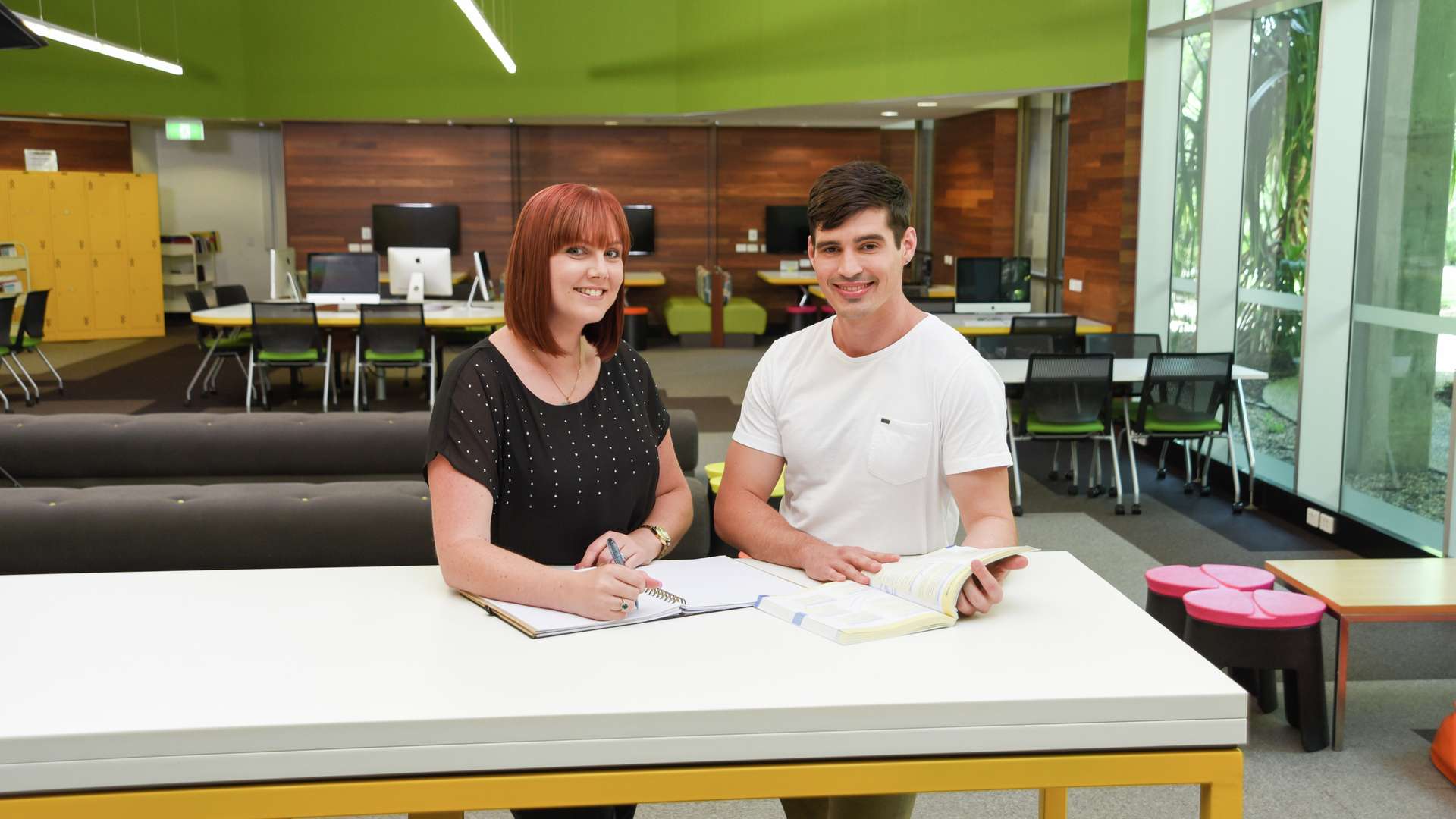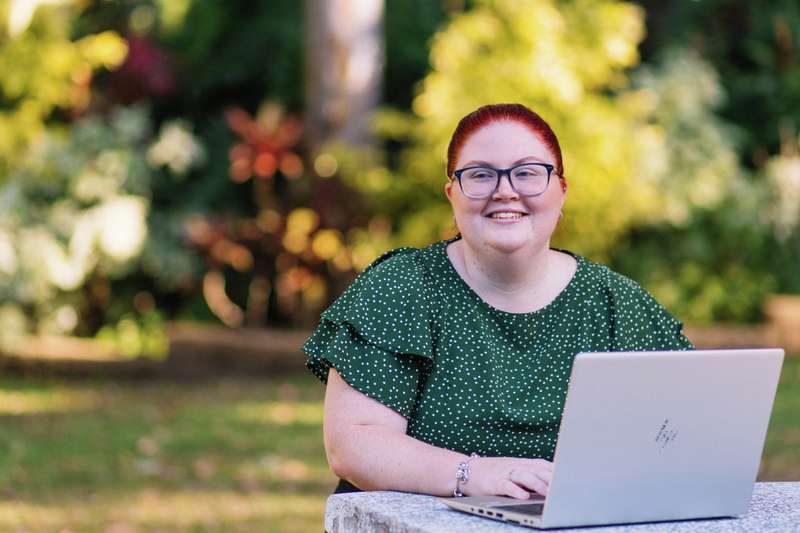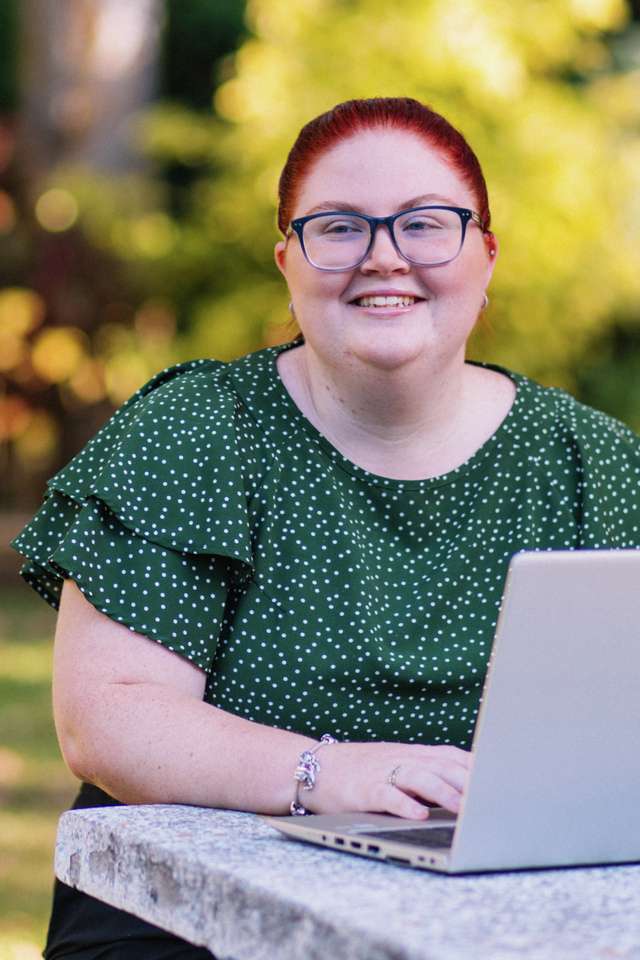Paying for Uni

When it comes to paying for your course fees, you can:
- defer your tuition or student contribution fees each term and take advantage of a government assistance HELP loan, or
- pay part of your fees upfront and defer the rest, or
- pay all of your unit fees upfront each term.
Defer Payment Via a HELP Loan
There is a range of government assistance loans available for different circumstances, including:
| HECS-HELP: | If you have a Commonwealth Supported Place, you may be eligible to access a HECS-HELP loan. |
| FEE-HELP: | If you have a full fee-paying place, you may be eligible to access a FEE-HELP loan. |
| SA-HELP: | If your course requires you to pay the Student Services and Amenities Fee (SSAF), you may be eligible for an SA-HELP loan. |
| OS-HELP: | If you want to study some of your course overseas, you may be eligible for an OS-HELP loan. |
HELP loan limits
From 1 January 2020, the Australian Government introduced a combined HELP loan limit which caps the amount you can borrow. This loan limit includes any HECS-HELP debt incurred from 2020 onwards, plus any existing and new FEE-HELP, VET FEE-HELP or VET Student Loans.
For more information on the HELP loan limit, visit the Study Assist website.
Eligibility criteria and how to apply for a HELP loan
Explore the different types of HELP Loans outlined below, including the eligibility criteria and how to apply.
If you meet the CSP eligibility criteria, you may be eligible for a HECS-HELP loan. HECS-HELP is a loan scheme that you can use to pay part or all of your student contribution. Alternatively, you may choose to pay your student contribution upfront without government assistance.
HECS-HELP is a government loan which means you defer paying your student contribution until your income is above the compulsory repayment threshold. To check the current compulsory repayment thresholds, visit the Study Assist website. Once your income is above the threshold, you begin repayments through the Australian Tax Office.
Are you eligible for HECS-HELP?
To be eligible you must:
- be studying in a Commonwealth supported place
- be one of the following:
- an Australian citizen who must study at least some of your course in Australia; or
- a New Zealand Special Category Visa (SCV) holder who meets the long term residency requirements and who studies the entire course while living in Australia; or
- a permanent humanitarian visa holder, or an eligible former permanent humanitarian visa holder; who studies the entire course while living in Australia
- submit the Request for Commonwealth support and HECS-HELP form to your provider by the census date
- be enrolled in each unit/subject at your provider by the census date
- have available HELP balance
- provide your Tax File Number (TFN)
- have a Unique Student Identifier (USI) prior to the first census date (for new enrolments from 1 January 2021)
- have sufficient Student Learning Entitlement available (for new enrolments from 1 January 2022)
- meet the completion rate requirements (for new enrolments from 1 January 2022)
- not undertake more than 2 years' worth of higher education study in 12 months (unless CQU has approved you to take on more).
Applying for HECS-HELP
You only need to apply for HECS-HELP once for the duration of your course. You'll do this via the Request for Commonwealth support and HECS-HELP form, which can be accessed from your MyCQU student portal. You will need to complete this form before the census date of your first term; otherwise, your enrolment for the term will be cancelled.
If you have provided your TFN and successfully applied for HECS-HELP, any student contribution amount not paid by the census date will be automatically deferred as a HELP debt to be reported to the Commonwealth for repayment through the Australian Taxation Office.
For more information on HECS-HELP, visit the Study Assist website. You can also read more in the HECS-HELP Commonwealth Supported Placements information booklet.
If you are paying full fees for your course, you may be eligible for a FEE-HELP loan. FEE-HELP is a loan scheme that you can use to pay part or all of your tuition fees. Alternatively, you may pay your tuition fees upfront without government assistance.
FEE-HELP is a government loan which means you defer paying your tuition fees until your income is above the compulsory repayment threshold. To check the current compulsory repayment thresholds, visit the Study Assist website. Once your income exceeds the threshold, you begin repayments through the Australian Tax Office.
Are you eligible for FEE-HELP?
To be eligible, you must:
- meet the citizenship and residency requirements (see below)
- have a Unique Student Identifier (USI) before the first census date
- maintain a completion rate of 50 per cent or above
- submit the Request for FEE-HELP assistance form before the census date
- meet the Tax File Number (TFN) requirements
- not undertake more than two years' worth of higher education study in the last 12 months (unless approved by CQU)
- have not exceeded your FEE-HELP limit.
Citizenship and residency requirements:
- an Australian Citizen who will undertake in Australia at least one unit of study contributing to your course, or
- the holder of a permanent humanitarian visa who will be resident in Australia for the duration of the unit, or
- the holder of a permanent visa undertaking bridging study for overseas-trained professionals who will be resident in Australia for the duration of the unit, or
- a New Zealand citizen who is not also a permanent resident of Australia and who is the holder of a Special Category Visa (SCV) and meets other eligibility criteria, and who will be resident in Australia for the duration of the unit.
You only need to apply for FEE-HELP once for the duration of your course. Your application form will be available after you have enrolled.
For more information on FEE-HELP, visit the Study Assist website.
Applying for FEE-HELP
To apply for FEE-HELP, you'll need to complete the Request for FEE-HELP assistance form available online via your MyCQU Student Portal. Forms must be submitted by the census date of the term you'd like FEE-HELP to come into effect. If you submit your form after the census date, you won't be eligible for FEE-HELP in that term and will be required to pay the full tuition fee for your enrolment.
Generally, you'll need to complete and submit a FEE-HELP form for the course you are studying. The only exceptions are if you are:
- a cross-institutional student enrolling in one or more units but not a full course of study and
- assessed as eligible to undertake bridging study for overseas-trained professionals.
The Student Services and Amenities Fee (SSAF) is a compulsory fee charged in addition to tuition fees and student contributions. It is charged each term of study and is used to enhance student services and facilities in accordance with funding guidelines. Whether you are studying online or on campus, SSAF goes towards improving your study experience.
You may be eligible for the SA-HELP loan, which is a scheme that allows you to defer payment of your SSAF. Your SA-HELP loan amount will be added to your accumulated HELP debt. Alternatively, you may choose to pay your SSAF upfront without government assistance.
Am I eligible for SA-HELP?
To access SA-HELP, you must:
- be one of the following:
- an Australian citizen who will study at least one unit of your course of study in Australia; or
- a permanent humanitarian visa holder or an eligible former permanent humanitarian visa holder who studies the entire course while living in Australia; or
- a New Zealand Special Category Visa (SCV) holder who meets the long term residency requirements and who studies the entire course while living in Australia
- provide your Tax File Number (TFN)
- submit the Request for a SA-HELP loan form to your provider by the census date.
You only need to apply for SA-HELP once for the duration of your course. Your application form will be available after you have enrolled.
For more information on SA-HELP, visit the Study Assist website.
Applying for SA-HELP
To apply for SA-HELP, you'll need to complete the Request for SA-HELP Loan form available online via your MyCQU Student Portal. You'll need to complete and submit the form by the census date of the term you'd like the SA-HELP to come into effect; otherwise, you will not be eligible for SA-HELP in that term and will owe the full Student Services and Amenities Fee to CQU.
If you intend to pay your SSAF upfront, there's no need to apply for SA-HELP. However, if a form is not submitted by the census date and upfront payment is not received, the outstanding fee cannot be deferred as a HELP debt. The outstanding fee will be classed as an unpaid debt and will go through the University Collections process. If this occurs, it may impact your study. Please refer to the Policy website and search for 'Collections Policy' for further details.
Studying abroad is a fantastic learning experience to undertake during your studies. Did you know there is government assistance available to help you cover the costs associated with studying abroad?
OS‑HELP is an Australian Government loan scheme that helps eligible students based in Australia and enrolled in a Commonwealth Supported Place (CSP) to undertake some of their study overseas. OS-HELP loans can be used for a range of expenses, such as airfares, accommodation and other travel or study costs.
In 2022, the maximum OS-HELP you can borrow for a six-month study period is:
- $8,519 in Asia (plus an extra $1,133 if you do Asian language study in preparation to study in Asia) or
- $7,100 outside Asia.
CQU receives a limited number of OS-HELP loans each year from the Australian Government. Once the OS-HELP loans have been fully allocated for the year, we are unable to approve or pay any further OS-HELP. Please note that CQU is responsible for determining the amount of OS-HELP you will be paid, taking into consideration overseas study destination, length of stay, among other things.
Am I eligible for OS-HELP?
To be eligible you must:
- be one of the following:
- an Australian citizen; or a permanent humanitarian visa holder; or an eligible former permanent humanitarian visa holder
- a New Zealand Special Visa (SCV) holder who meets the residency requirements and who will be resident in Australia at the time of applying
- be enrolled into a CSP
- be planning to undertake full-time study overseas or a relevant study tour, placement or internship
- have not received OS-HELP on more than one other occasion
- have completed one EFTSL of study (usually one year of full-time study)
- provide your Tax File Number (TFN)
- submit an OS-HELP Debt Confirmation form
- on return from overseas study, have at least 0.125 EFTSL of your course to complete in Australia which is usually one unit (6 credit points)
Please view the OS-HELP Policy and Procedure for the full CQU OS-HELP eligibility requirements.
For more information on ON-HELP, visit the Study Assist website.
As a student, you can access the OS-Help Application form by emailing our Student Governance team or via your MyCQU student portal.
Pay Upfront - Part or Full Payments
If you are paying up front, your unit fees will be calculated each term based on your enrolled units. Once you are a student and enrolled in your units, you'll be able to access your fee information and Fee Notices via your student portal. When you pay upfront, you'll need to pay your unit fees no later than the census date of the term you have enrolled. Your Fee Notice for each term will detail specific payment due dates.
You'll be required to pay upfront each term if you are:
- a permanent resident of Australia, including a New Zealand citizen who is also a permanent resident of Australia;
- a New Zealand citizen who is not the holder of a Special Category visa or who has not supplied evidence of your Special Category visa status by census date;
- an Australian citizen who has not supplied your Tax File Number on their Request for Commonwealth support and HECS-HELP form by the census date.
If you are required to pay your fees upfront and fail to do so by the payment due date (census date) your enrolment will be cancelled for that term.
Information For
If you're a New Zealand citizen or permanent resident, learn more about course fees and support available.
The Australian Government passed legislation to allow New Zealand citizens who are Special Category Visa (SCV) holders and long-term residents of Australia to access a HELP loan from 1 January 2016.
Am I eligible for a HELP loan?
To be eligible you must:
- hold a New Zealand Special Category Visa (SCV)
- meet all the long-term residency requirements
- be living in Australia while you study
Long-term residency requirements:
You'll also need to meet the long-term residency requirements, including that you:
- first began to be usually resident in Australia at least ten years ago
- were under 18 years of age with no spouse or de facto partner when you first began to be usually resident in Australia
- have been in Australia for at least a total of eight out of the previous ten years (from when you apply for the loan), and a total of 18 months out of the last two years (from when you apply for the loan).
Please note that if your citizenship and/or residency status change while studying, you must notify the university immediately.
For more information on New Zealand citizens and HELP loans, visit the Study Assist website.
CQU's procedure for New Zealand citizens
CQU assumes that all current and future students who are New Zealand citizens do not hold a Special Category Visa (SCV) or that they DO NOT meet the other eligibility criteria.
New Zealand citizens in these categories will continue to be offered either:
- Commonwealth-supported places, in which they are not eligible for HECS-HELP but must pay their student contributions upfront in full each term on or before the census date, or
- full fee-paying places, in which they are not eligible for FEE-HELP assistance.
New Zealand citizens who do not hold an SCV or meet other eligibility criteria are not eligible for SA-HELP or OS-HELP assistance.
If you are a New Zealand citizen and hold a Special Category Visa (SCV) and believe you meet the eligibility criteria for HELP assistance, you will be required to provide evidence to CQU that establishes your eligibility for HELP.
Evidence of Eligibility
You can lodge a Request for International Movement Record with the Department of Home Affairs and attach this document when you submit your Commonwealth assistance form/s in your MyCQU student portal.
After your Commonwealth assistance forms are submitted (with your International Movements Record) and approved you'll become eligible for HELP.
Forms must be submitted and approved on or before the census date of the term in which they are to take effect. If submitted or approved after the census date, you will not be eligible for a HELP Loan in that term, and you will be required to pay your student contribution or tuition fee, and your Student Services and Amenities Fee upfront in full.
Once the forms are submitted and approved, you can defer payment of the fee/s due if you have provided your Tax File Number. HELP debts incurred by deferring payment are repaid through the Australian Taxation Office.
What if you leave Australia or become a permanent resident?
If you are a New Zealand citizen, eligible for a HELP loan, and you leave Australia, you immediately cease to be eligible for HELP assistance as the Special Category Visa applies only if you are resident in Australia. You must advise CQU if you leave Australia and keep your contact details up to date at all times.
If you are a New Zealand citizen and become a Permanent Resident of Australia, you must notify CQU immediately. A permanent resident does not hold an SCV and is not eligible for HELP assistance.
For more information, including OS-HELP for New Zealand SCV holders, visit the Study Assist website.
As a permanent resident, you can access a Commonwealth Supported Place. You are not eligible to access a HELP loan.
For more information, visit the Study Assist website.
Find a scholarship
We offer a variety of scholarships that can give you a helping hand with a range of expenses and enhance your employability.


Government Support
Check out the Study Assist web page to learn about Youth Allowance, Austudy and other payment and support options for eligible students.
Related information
Fees for International Students
As an international student, you will enrol in your course as a full fee-paying student. Tuition fees vary depending on the course and units you study. At CQU, we offer additional support when it comes to tuition fees plus, we have competitive fees.
Understanding University Fees
How do undergraduate and postgraduate uni fees work? Learn about the different types of fees at CQU and what applies to you.
Other Study Costs
In addition to course fees, you may need to pay for other costs such as travel to residential schools and placements, uniforms, textbooks and more.
